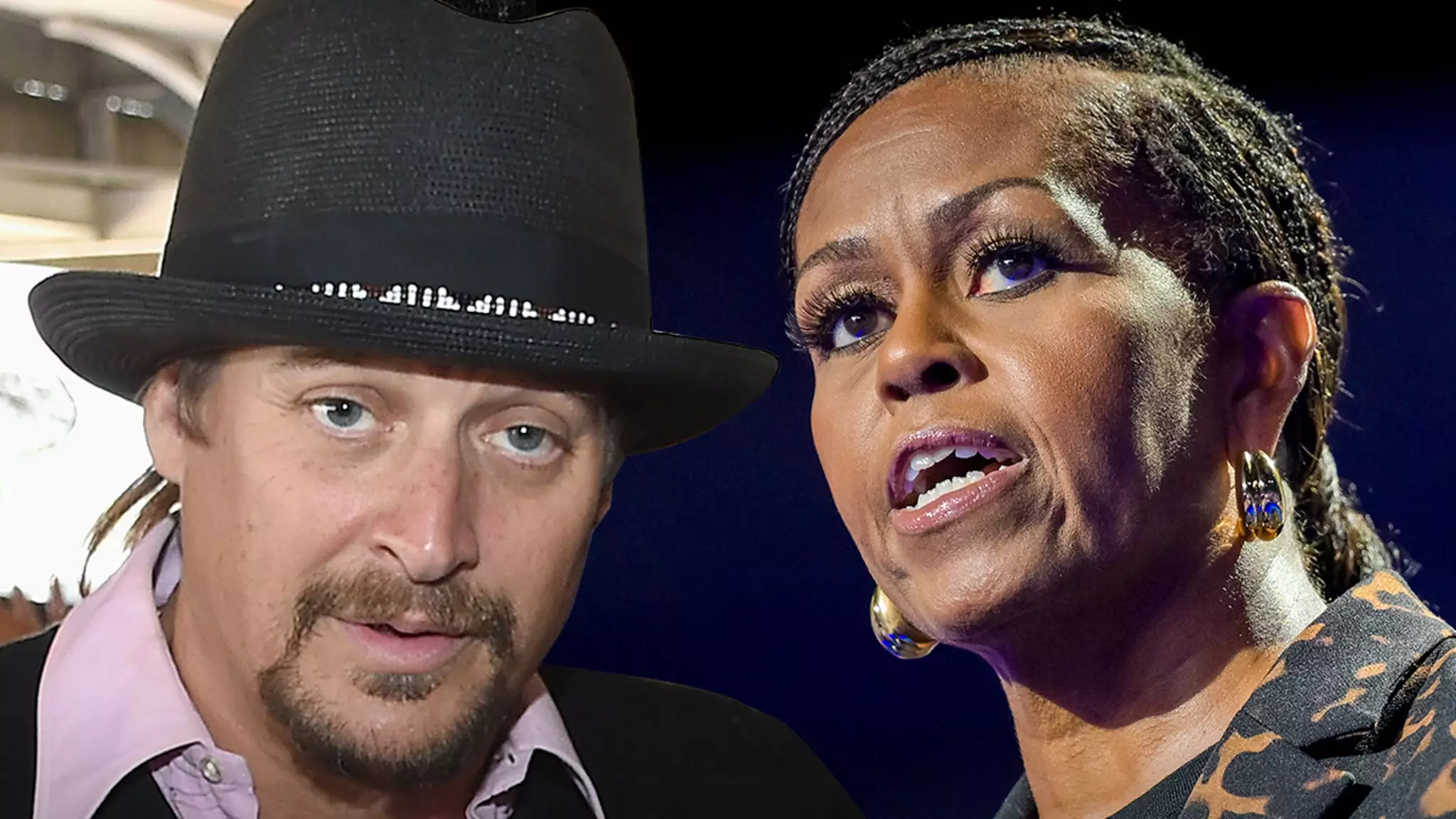In the current climate where celebrity culture often intertwines deeply with political events, the actions and statements of public figures gain heightened scrutiny. Recently, musician Kid Rock found himself in the spotlight for his upcoming performance at one of Donald Trump’s inauguration events. However, his comments about former First Lady Michelle Obama add yet another layer of complexity to the relationship between entertainment and politics.
Kid Rock’s remarks during an interview on “Jesse Watters Primetime” illustrate a common theme in political discourse—using humor and jabs to highlight ideological divides. His comments suggested that Michelle Obama’s absence from Trump’s inauguration was linked to an emotional response, labeling her as “a little angry.” This characterization not only simplifies her decision to abstain from the event but also politicizes her presence in a manner that echoes the polarized sentiments in today’s political landscape. The fact that Michelle confirmed her absence without elaborating adds a level of intrigue; it pushes the narrative that personal choices are often construed as political statements.
The debate over who attends which events can be emblematic of larger societal divisions. While Barack Obama’s attendance signifies a level of bipartisan respect—having been seen conversing with Donald Trump—Michelle’s absence raises questions about the emotional toll of political disillusionment. The disparity between a former president and first lady’s responses to a contemporary inauguration is telling. It points toward the nuanced ways political affiliations shape personal relationships and public engagements.
Moreover, the significance of Kid Rock performing alongside other prominent musicians such as Carrie Underwood and Billy Ray Cyrus at an inauguration underscores the power of celebrity influence in shaping public opinion. These events offer a platform not just for celebration but also for subtly reinforcing political narratives. Kid Rock’s insistence on sharing his experience performing at Barack Obama’s inauguration serves as an interesting juxtaposition; it reflects the complexity of navigating political affiliations while being a public entertainer.
This merging of entertainment with political events can often generate mixed reactions from the public. Supporters may view it as a celebration of democracy and artistic expression, while critics may see it as trivializing significant political moments. The phenomenon raises the question: at what point does a star’s presence morph from an entertaining distraction to a potent political statement?
Ultimately, the reactions to such events reveal much about societal sentiment. Kid Rock’s commentary, though perhaps meant as a light-hearted jab, exemplifies the tensions present in contemporary politics. The involvement of celebrities like Kid Rock in political events often becomes more about the spectacle than the significance of political transition itself.
As Michelle Obama opts out of events that her husband previously attended, her absence invites speculation, revealing the depths of personal conviction in a fragmented political environment. It leads to an important discourse on identity, loyalty, and the choices that define us in the public sphere. The interconnection of celebrity culture and political discourse continues to evolve, influencing how events are perceived by the public and how public figures choose to engage—or disengage—from those same events.

Leave a Reply